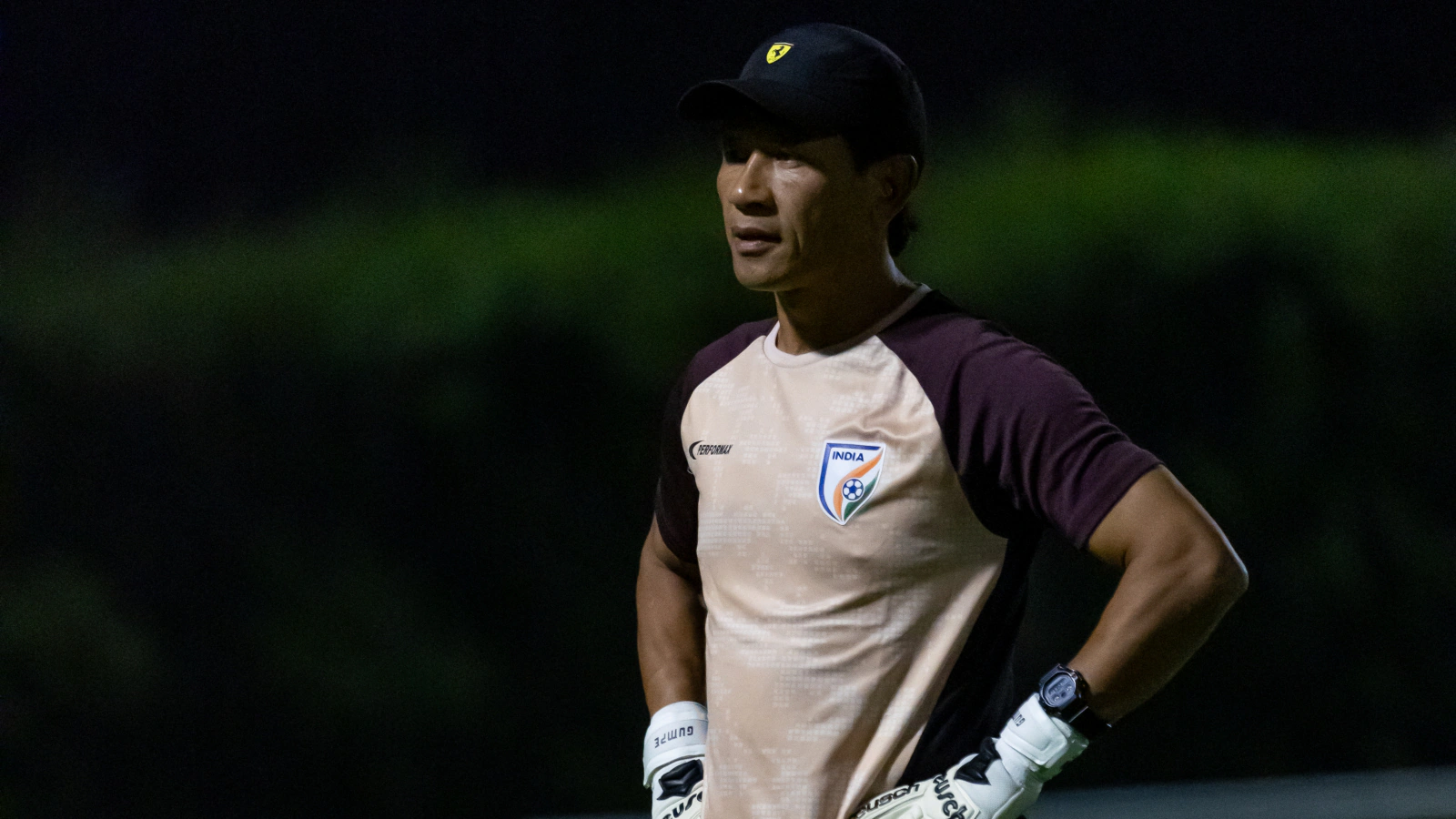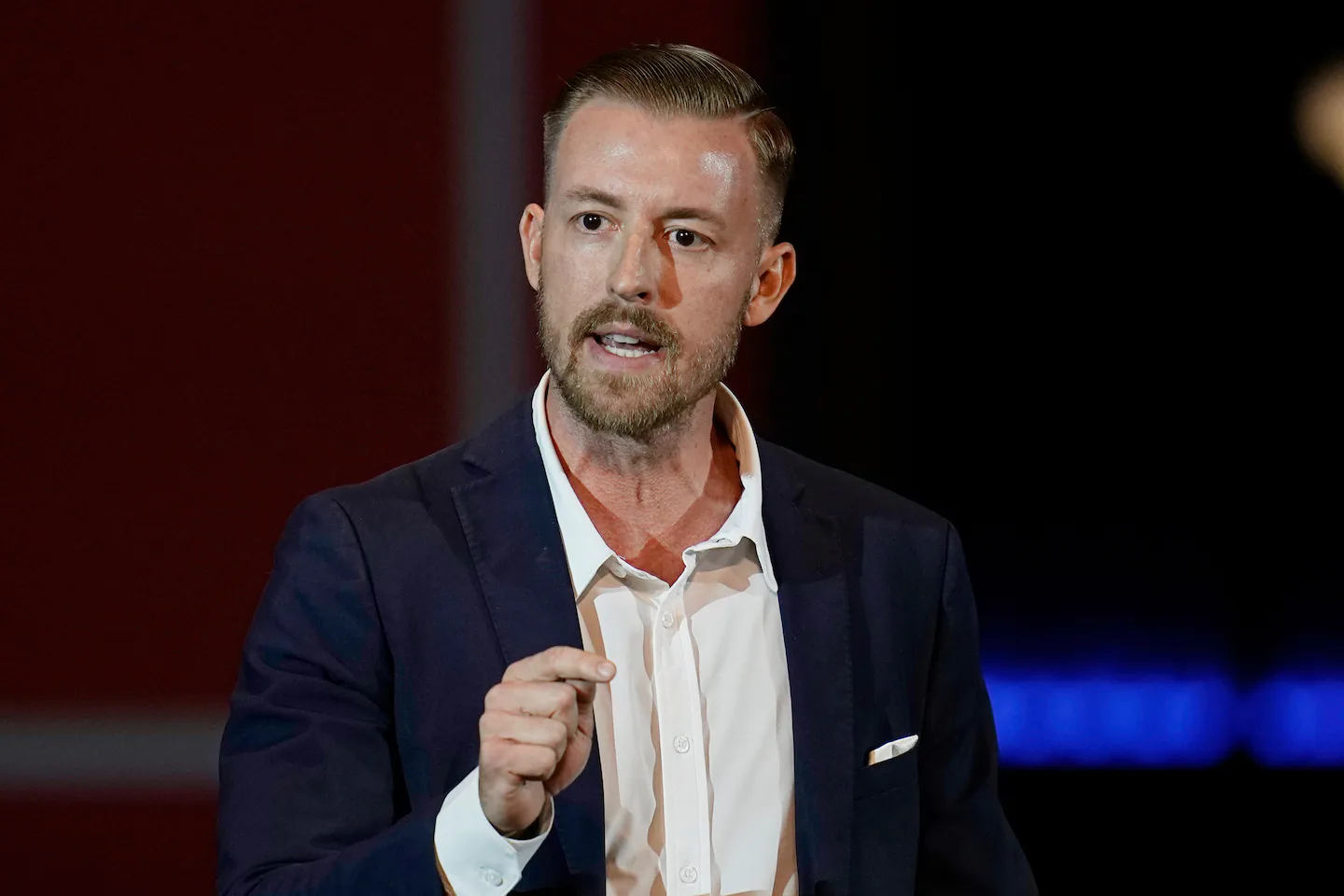‘Indian Football Needs Stronger Roots, Not Just Big Dreams’: Gumpe Rime On Building The Next Generation
By Feroz Khan,News18,Siddarth Sriram
Copyright news18

When Gumpe Rime left home as a teenager, he did so against his parents’ wishes.
“I lied to my parents to move to Guwahati because I wanted to play football,” he recalled. “My name first appeared in the newspaper after a local tournament — that’s when they found out.”
That raw desire, coupled with relentless work, defined his playing days at a time when India had no structured academies or specialised goalkeeper coaches.
Today, decades later, Rime — an AFC Pro License holder, a goalkeeping coach with the India U-23 national team, and Head of Goalkeeping at Reliance Foundation Young Champs (RFYC) — is helping shape some of the country’s rising prospects.
However, in an exclusive conversation with News18 Sports, he warned that India’s footballing structure still has critical gaps to address if it wants to compete beyond South Asia consistently.
Senior Team Tip Of The Iceberg
In recent years, India’s youth football has begun to show encouraging signs of progress, with both the U-23 and U-17 national sides making headlines.
India’s U-23 men’s team put up a strong campaign at the AFC U-23 Asian Cup 2026 Qualifiers, ever-so-narrowly missing out on qualification for the finals. The U-17 men’s team, on the other hand, secured their seventh SAFF U-17 Championship.
Despite India’s recent success at the SAFF level, Rime believes international stagnation stems from a weak grassroots pipeline.
“The senior team’s performance depends on the base,” the U-23 goalkeeping coach exclaimed.
“Without a strong grassroots pyramid, coaches at the top have fewer options. Even in a country of over a billion, only a small fraction actually plays football. Unless more states adopt good systems and grassroots programs, the national team will continue to struggle.”
The issue isn’t just numbers — it’s quality. Many academies, Rime pointed out, still cut costs by hiring under-qualified coaches for youth programs.
“Many coaches want to jump straight into senior roles after getting their licences. But the truth is, top coaches at the grassroots can make the biggest difference. That mindset has to change.”
‘Child First, Player Second’
At RFYC, Rime reaffirmed that the focus isn’t only on producing professionals. The AfterCare program, launched in 2025, ensures that academy graduates who don’t make it in professional football still have pathways — whether through education, scholarships, or even coaching.
“Not every player will play for India or in the ISL. Maybe three or four out of twenty will turn professional,” Rime admitted.
“That’s why education is equally important. Football can open doors, even if it doesn’t give you a professional contract. Our motto is clear: Child first, player second.”
Goalkeeping: The Game Within the Game
Goalkeeping is often the most overlooked aspect of football, yet it is one of the most decisive. While attackers and midfielders grab headlines for goals and assists, goalkeepers quietly provide the foundation for success.
A single save can change the momentum of a match, preserve vital points, or even win championships. In truth, goalkeeping is not just a supporting role — it is the difference between defeat and glory, making it far more crucial than often acknowledged.
As a specialist coach, Rime emphasised the increasing importance of goalkeepers in modern football.
“Success comes not just from scoring more, but from conceding fewer. A confident goalkeeper gives the whole team belief. That’s why top clubs now pay them among the highest salaries. Goalkeeping coaches, who were once peripheral, are now central to planning and strategy.”
It’s a far cry from his playing days, when there were no specialised trainers.
“Back then, goalkeeping was neglected. Today, it’s a sport within a sport.”
Football In The Age Of Social Media
Another shift Rime has witnessed is the impact of social media on young players. “It’s a double-edged sword,” he said.
“Some kids use it wisely, others overindulge and harm their performance. At RFYC, we limit phone use in younger age groups and run media sessions to teach them branding versus distraction.”
But, the phenomenon isn’t unique to India. Social media and PR campaigns have transformed football far beyond the pitch.
Today, players are not only athletes but also global brands, with platforms like Instagram, X, and TikTok amplifying their reach. A single post can influence millions, attract sponsors, and shape public perception instantly.
Clubs and agents now invest heavily in digital strategies to build player profiles, sometimes elevating hype over performance. While this offers opportunities for visibility and financial growth, it also adds pressure, exposing players to constant scrutiny.
In modern football, success is measured not just in goals and trophies, but in likes, followers, and media presence.
That is exactly why Rime warned against mistaking online hype for real progress.
“Talent alone won’t take you to the top. Desire and hard work still matter most. Social media won’t win you matches.”
Building For Asia, Not Just SAFF
Rime also remained clear-eyed about India’s next frontier.
“We’ve done well in SAFF, but the real test is Asia — Japan, Saudi Arabia, Uzbekistan. If we can consistently compete at that level, only then can we think bigger.”
The key, he insisted, is sustained investment in youth competitions, quality coaching, and honest conversations with players and parents.
“False promises hurt the game. We need honesty, patience, and the right structures. That’s how we build a footballing culture, not just a team.”
Desire Over Talent
Reflecting on his own journey, the Indian coach circled back to one core theme.
“Talent is not enough. Desire and effort will take you further. I see today’s kids — they have better facilities, but also more distractions. If they want to succeed, they must make the sacrifices. That hasn’t changed from my time.”
For Indian football, the message is equally clear: if the country wants to rise, the sacrifice must start at the roots — with real investment in its children, not just in its stars.



